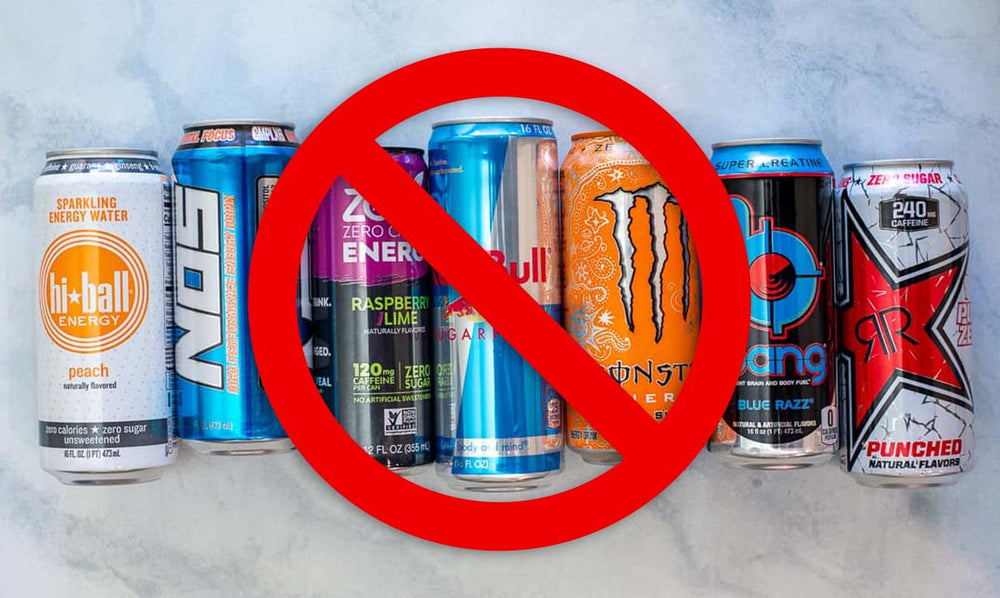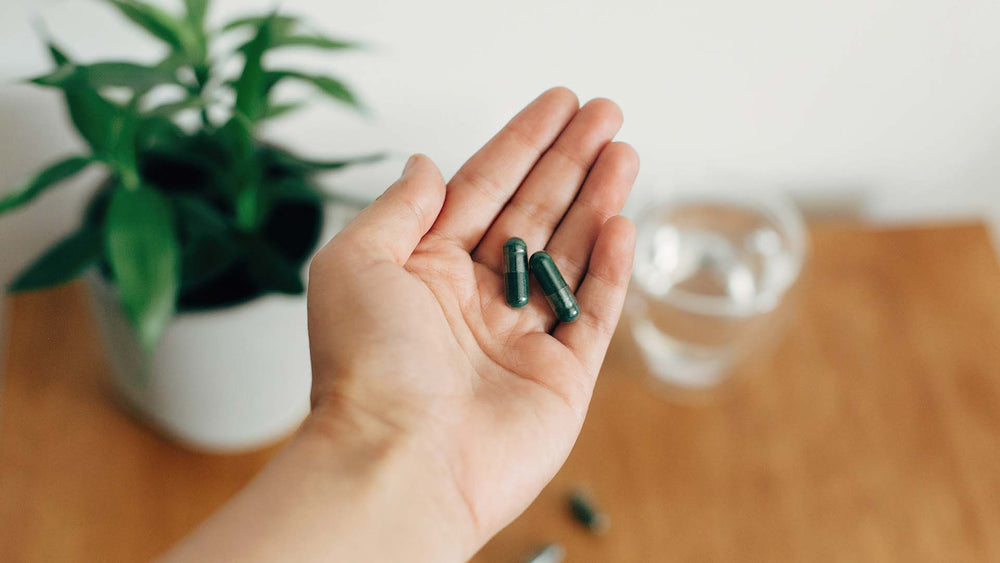Studies over the past 30 years have shown that pets increase the quality of your life and your longevity. You’ll experience the health benefits of having a dog, cat or other pet long after the animal has left the room.
An Australian study of 5,741 people found that pet owners, even ones who smoked and ate fatty foods, had had lower blood pressure and cholesterol levels than the pet-free participants with similar lifestyles.
But research shows that pets can do more than improve physical health. They can provide emotional support, ease the effects of social isolation and boost the spirits of depressed and anxious people. The use of animals for emotional support has been in the news recently, due to air passengers bringing animals with them on flights.
Buy Happy Girl Mood Enhancing Supplement to Feel Better Naturally
HAPPY GIRL helps you to feel calmer, more energetic, and promotes an overall feeling of well-being.
What is an Emotional Support Animal?
An emotional support animal (ESA) offers comfort to a person with a mental or emotional disability. You must have a letter from a mental health professional stating your need for the animal and a verifiable condition (anxiety, depression, etc.) to qualify for an ESA.
Dogs and cats are the most common emotional support animals, though some people have more exotic ones, like pigs or peacocks. The recent rise in popularity of emotional support animals has caused a backlash among airlines and their passengers, as some people may be taking advantage of airlines’ ESA policies.
You don’t need to train an emotional support animal to bring it on a plane or anywhere in public. The animal needs to be quiet and well-behaved, just like any pet.
Anyone who has a diagnosed emotional or mental disorder can register a pet or other animal as an ESA. You’ll need a letter from your doctor if you want to travel on a plane with the animal. Check your airline for their policy.
Dogs help you get out of the house and get some Vitamin D (sunshine). They help you get some exercise, which does more than keep you trim. The physical activity boosts endorphins to make you happier naturally.
Pets Provide Comfort for the Isolated and Mentally Ill
Pets are important for people with mental illness who spend most of their time at home, or for isolated elderly people with depression or Alzheimer’s. An article published in the journal BMC Psychiatry stated that many people with long-term mental illness felt a sense of security and emotional connection with their pets that they didn’t get from family or friends. Out of 54 mentally ill people interviewed for a study, 25 of them said their pets were part of their social circle, with 60% of those interviewees considering pets as important as social workers or friends.
People with serious mental illness and the elderly often see their social circles shrink. When they care for and play with a pet, it gives them the emotional connection they may lack in other areas of their lives. A pet provides comfort and joy when humans are unavailable or unresponsive.
Buy Happy Girl Mood Enhancing Supplement to Feel Better Naturally
HAPPY GIRL helps you to feel calmer, more energetic, and promotes an overall feeling of well-being.
Dogs May Have an Edge in Comforting the Lonely and Stressed
Unlike cats, dogs must have a regular feeding and exercise schedule. A routine keeps your dog happy, and it’s good for your health, too. You may not feel like getting out of bed or going outside, but your dog will coax you into action with one moan.
Dogs don’t care what you look like, what happened yesterday, or what will happen tomorrow. They are completely in the present, and can help you live in the present when you’re obsessing about the past or future.
The companionship of a dog can offer comfort, help ease anxiety, and build self-confidence for people anxious about going out into the world. Because dogs live in the moment—they don't worry about what happened yesterday or what might happen tomorrow—they can help you become more mindful and appreciate the joy of the present.
Walking your dog forces you to get out of the house. You’ll meet other dog owners at the park, the vet’s or in your neighborhood, and strike up conversations. Since the initial discussions usually involve the dogs, even shy or anxious folks will be more inclined to talk. All dog owners love boasting about their pets!
Pets Help Seniors Live Happier, Longer Lives
Older adults and Alzheimer’s patients benefit from having a pet at home in several ways:
- As you age, you may retire, downgrade to part-time work, or live far away from your grown children. Caring for a pet gives you self-worth and something to look forward to each day. Pets give the elderly a reason to get out of bed and out of the house every day.
- The chance of becoming clinically depressed is four times higher for people without pets. Pet owners need fewer medical services and tend to be happier with their lives.
- Dogs (and cats) improve quality of life for older adults by encouraging exercise and playfulness, which boost energy and keep seniors engaged in life.
Pets, Dementia and Alzheimer’s
All pets, even hamsters and goldfish, can reduce the irritability, depression, and anxiety that often accompany dementia. Domestic pets are non-threatening. They provide social interaction for patients who may be unable to form friendships with other people due to their illness. A therapy animal communicates with dementia patients in a way they can understand.
Buy Happy Girl Mood Enhancing Supplement to Feel Better Naturally
HAPPY GIRL helps you to feel calmer, more energetic, and promotes an overall feeling of well-being.
According to one study, Alzheimer’s patients are less stressed and have fewer outbursts if they have a cat or dog in their home.
A 2002 study measured the difference between how nursing home residents behaved when a resident dog was present, instead of just a visiting dog. Researchers looked at the behavior before the resident dog was placed in the home, and again four weeks later. Day shift subjects experienced fewer behavior problems during those weeks. There was no appreciable difference in the behavior of evening shift subjects.
Ongoing pet therapy is used to help people with behavioral and emotional disorders, including dementia. A certified, professional pet therapy handler helps the patient interact with the animal (usually a dog). The patient pets, plays with cuddles or cares for the animal, according to a treatment plan.
Petting or cuddling with a therapy animal calms dementia patients. It reduces levels of the stress hormone cortisol and aids production of the happiness hormone serotonin. A therapy pet also alleviates the boredom that leads to depression.
People with dementia are reminded of old pets they had when they play with a therapy animal. It can bring back wonderful memories of their past.
Buy Happy Girl Mood Enhancing Supplement to Feel Better Naturally
HAPPY GIRL helps you to feel calmer, more energetic, and promotes an overall feeling of well-being.
How Children Benefit from Owning a Pet
Growing up in a household with a dog or other pet teaches children responsibility. Caring for a pet gives kids a sense of pride and heightens their compassion for other creatures. Here five benefits pet ownership offers youngsters:
- Children who have an emotional attachment to their pets form better friendships with other people.
- Pets, especially dogs, can calm aggressive or hyperactive kids, as long as the pet and child have been raised properly.
- Playing with a pet can help children with autism or other learning disabilities stay alert throughout the day.
- A pet’s companionship and loyalty can improve a child’s confidence and make them feel important or “grown-up”.
- Playing with a pet stimulates a child’s imagination and curiosity.
How to Choose The Right Pet
Your budget, the amount of space in your home, and your ability to care for a particular type of animal are the main factors in choosing the right pet. You should also consider your lifestyle. If you work long hours, a cat, fish or other easy to care for animal will be best for you. Retirees, people who work at home, or families may enjoy the companionship a dog brings.
Dogs provide the most mental and physical health benefits. Dog owners get more exercise than non-owners, and petting a dog helps your body release the feel good chemicals dopamine and serotonin.
Cats are easier to care for than dogs, but some of them can be notoriously aloof. Petting or cuddling your cat will release dopamine and serotonin, just like petting a dog. Cats can protect your physical health, too. A University of Minnesota study found that cat owners were 40% less likely to have a heart attack than non-owners.
An aquarium full of fish has a calming effect, like listening to music. Gazing at a fish tank for 20 minutes can be as effective as being hypnotized for reducing stress – even if you’re having dental surgery.
Birds provide beauty and amusement if you have a small apartment. They’re not as “hand-on” as dogs or cats, but they’re more interactive than fish. Birds are highly intelligent, and you can teach them to perform tricks. If you’re looking for a life-long companion, birds are a good choice. Some species live up to a hundred years.
Pets Improve Physical Health, Too
Maintaining good physical health is important to guard against depression, anxiety, and other mental problems. If you exercise, it boosts feel-good hormones called endorphins; if you eat right, you’ll be less likely to develop diabetes, heart disease, or cancer.
Allergies and Asthma
Children who grow up with pets are less likely to develop allergies and asthma. A study showed that children who spent their first year in households with cats or dogs had a reduced chance of allergies when compared with children in pet-free homes. If children were raised in a home with two or more pets, the chance of allergies and asthma was reduced by 77 percent.
Doctors theorize that exposing infants to the bacteria dogs and cats carry help immunize them against the bacteria they’ll encounter later in life.
Stress, Blood Pressure and Heart Disease
Petting and brushing your dog or cat not only makes the animal feel better, it also triggers an anti-stress hormone in your body called oxytocin. Instead of rushing through a grooming session, focus on your pet’s rhythmic breathing and warm fur. The calming sensation will help nurture your bond with the animal while lowering your cortisol and blood pressure levels.
When you pet your dog or any friendly canine, it lowers your blood pressure and heart rate. Your breathing is normalized and muscles relax. These signs of reduced stress are accompanied by blood chemistry changes confirming fewer stress hormones. Petting a dog reduces your stress within five to 24 minutes, less time than it takes for some anti-stress drugs to work.
By soothing people with stressful lifestyles, pets can reduce the chance of heart disease – or even help people who already have heart problems. Busy stockbrokers took part in a study to evaluate how a stressful lifestyle impacted their blood pressure. After role-playing a tense conversation and solving numerical problems quickly, the average blood pressure of participants was 184/129mm.
One group of stockbrokers received a dog or cat as a pet along with medication. The second group received medication only. At the end of six months, stress-related blood pressure results for stockbrokers with pets were half of those for the group without pets.
Another study, published in the American Journal of Cardiology, followed 400 patients for a year after they had suffered heart attacks. Pet owners had a better survival rate than non-owners.
More benefits of having a pet:
- Pet owners have lower cholesterol and triglyceride levels than non-owners
- Adults over 65 visit their doctors 30 times less than people without pets
- When people with hypertension adopt shelter dogs or cats, their blood pressure decreased considerably with the next five months
A Pet, Along with a Healthy Lifestyle, Can Reduce Stress and Depression
Playing with and caring for a pet reduces anxiety, elevates your mood and keeps your blood pressure under control. It’s an enjoyable, but lesser-known, way to avoid many of the pitfalls of poor health.
If you’re a high-strung person, (or prone to mild depression) caring for a dog or cat is just one part of a drug-free plan to keep your emotions on an even keel. Eat right and avoid processed food, exercise, meditate and take an all-natural supplement designed to enhance your mood.
Happy Girl Mood Enhancer from Wheatgrass Love contains wheatgrass, nature’s superfood, and a blend of happiness-boosting herbs including goldenseal, zinc gluconate, uva ursi and green tea extract. Wheatgrass has hundreds of vitamins and minerals, courtesy of the super-nutrient chlorophyll, and the additional ingredients offer even more health-enhancing properties. Read user reviews to learn more.
















